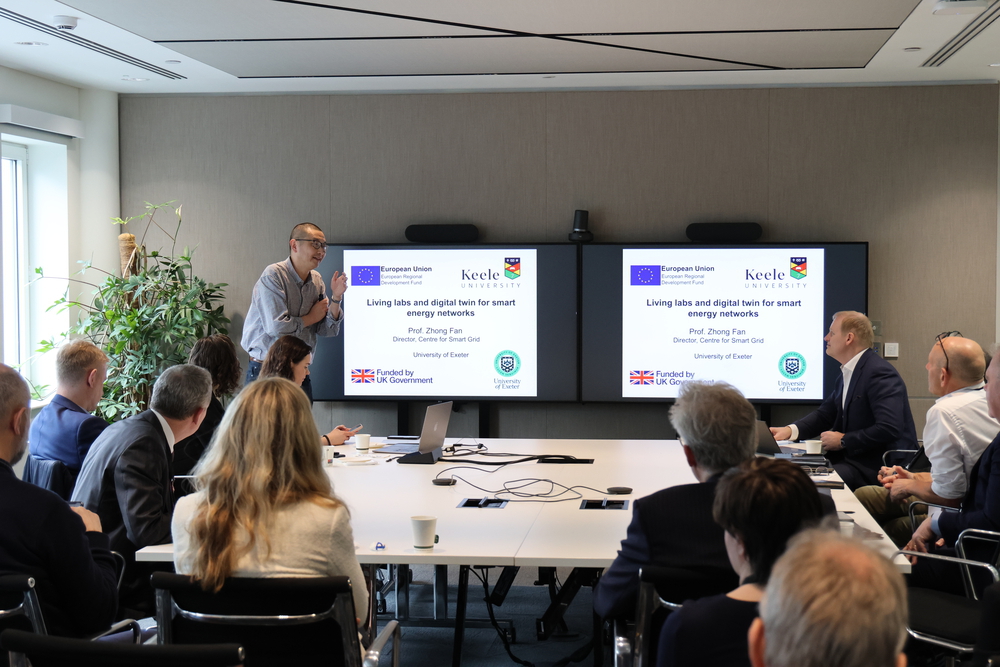The background for the event is that the UK and Norway have significant stakes in robust and resilient critical infrastructure and energy systems. With the rising integration of AI technologies, there's an urgent need for international collaboration and shared expertise.
Therefore, the participants in the workshop represented a mix of academic, business, and policy expertise and the key desired outcomes were establishment of a UK-Norway working group on AI safety standards, and a collaborative research and development agenda to address shared challenges.
The workshop consisted of presentations, discussions, and networking opportunities, structured to encourage open dialogue and problem-solving among participants.
Members of the dScience Partner Program and the AI Safety working group played a significant role in planning and taking part in the workshop.
Welcome and opening
Lars Dahl, Global Head of Risk at Norges Bank Investment Management (NBIM), welcomed all attendees and led the workshop.
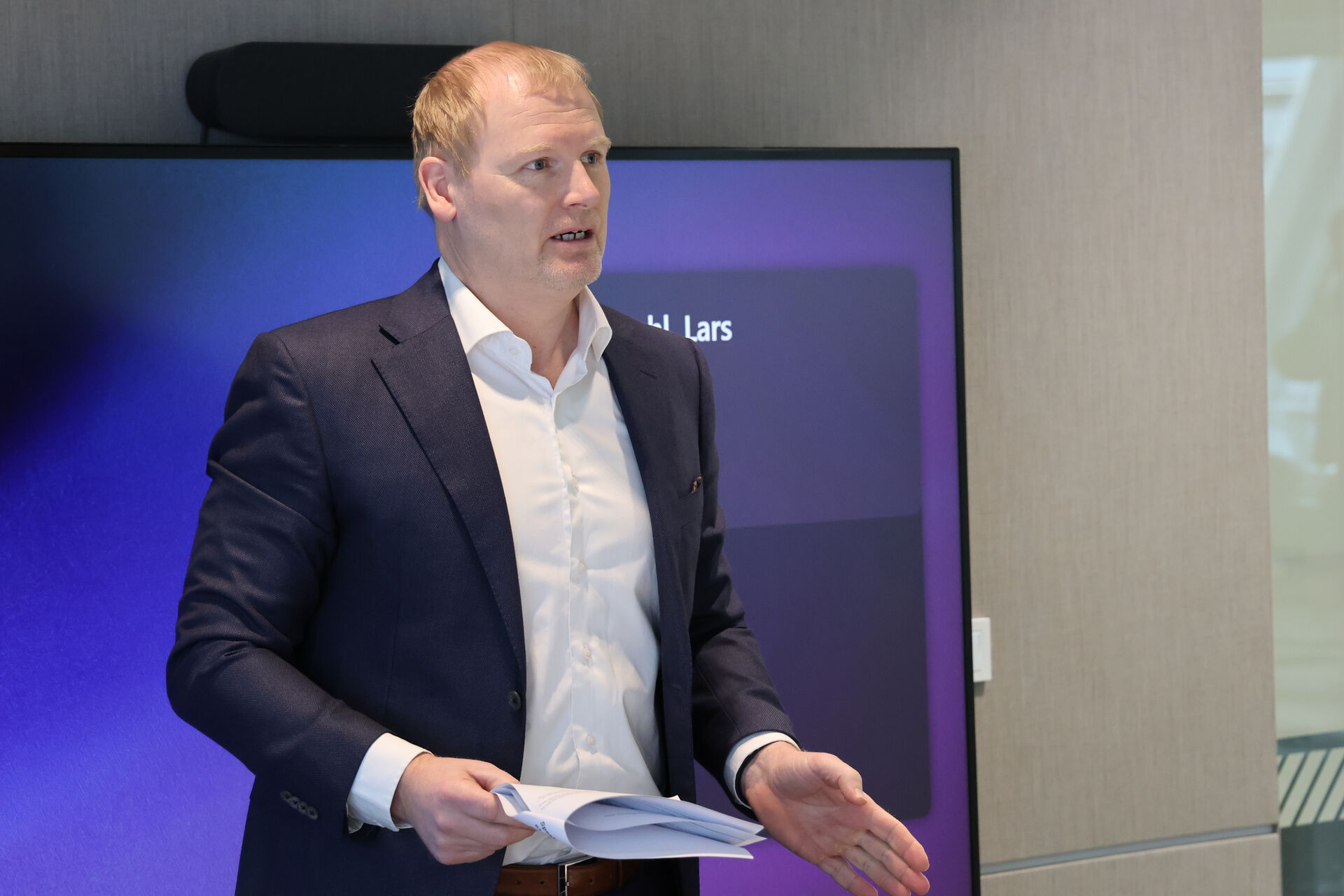
Dahl stressed the significance of the dScience Partner Program, which NBIM is a part of, along with other major Norwegian companies and organisations. This partnership is viewed as a vehicle for bringing industry challenges to the academic world, fostering research projects that can yield practical innovations. He underscored the mutual benefits of industry-academia collaboration, highlighting the importance of leveraging academic research while contributing industry insights and challenges to guide research directions.
Furthermore, Dahl posed a critical question regarding the pace at which AI safety, regulation, and ethics can evolve to keep up with the rapid advancements in AI technology. He highlighted the necessity of developing frameworks and standards for AI safety and ethics that match the speed of innovation in the field. This is crucial for responsibly harnessing the potential of AI technologies in a way that ensures safety and aligns with societal values, he said.
This was supported by Idar Kreutzer, Director International Affairs, Digitalisation and Sustainable Development, NHO (Norwegian Confederation of Business), who highlighted the meeting as a platform for collaboration across academia, industry, and international partners to excel in AI. He noted the importance of balancing advanced science with practical applications to boost Norway’s economy.
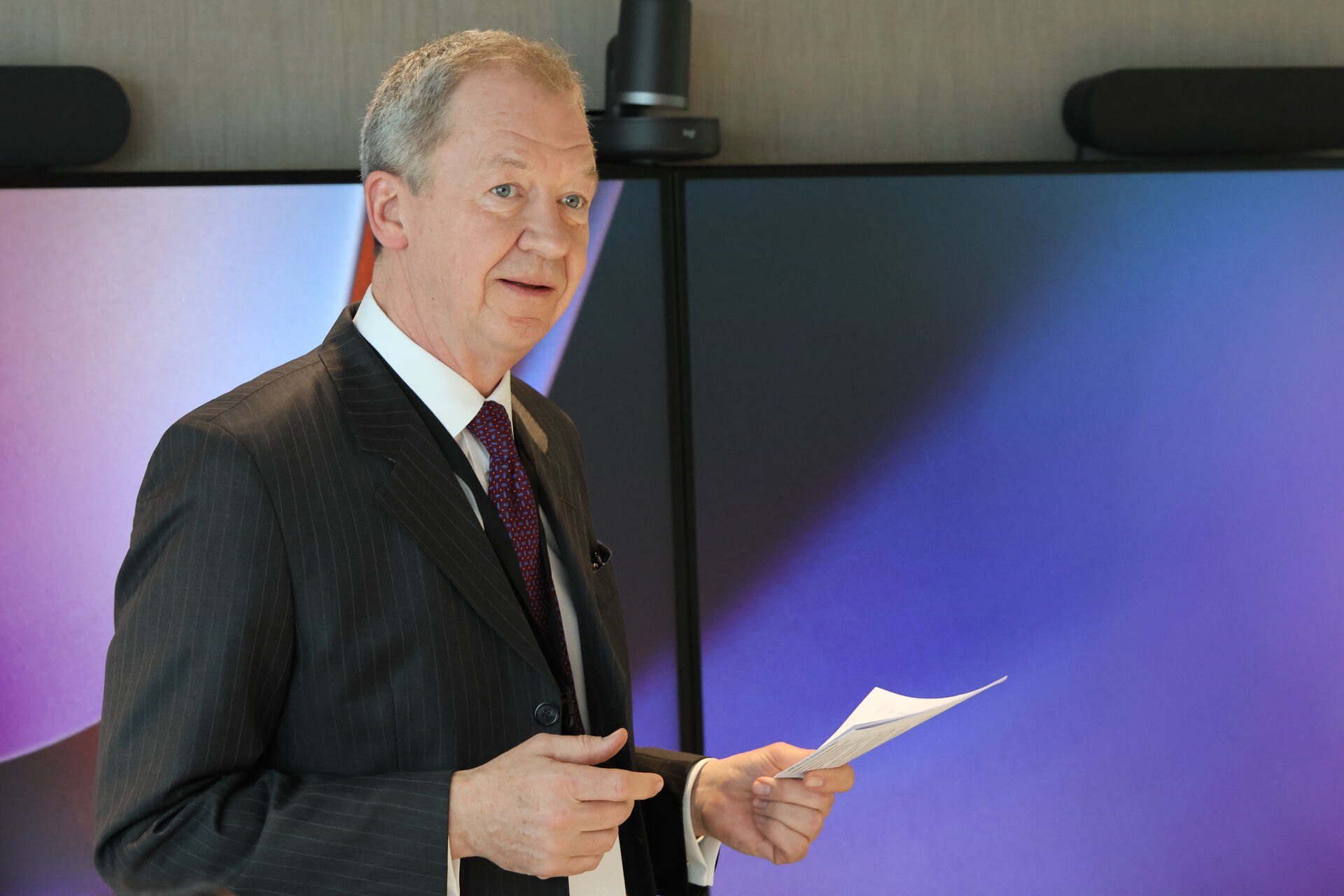
He also highlighted the meeting's role in setting AI standards and called for actionable outcomes that harness the technological strengths and commitment to responsible AI of both Norway and the UK.
Svein St?len, Rector at the University of Oslo, had the final opening talk.
St?len underscored that the competitive nature of AI development creates a need for Europe and Norway to embrace innovative, cross-disciplinary collaborations to stay competitive.
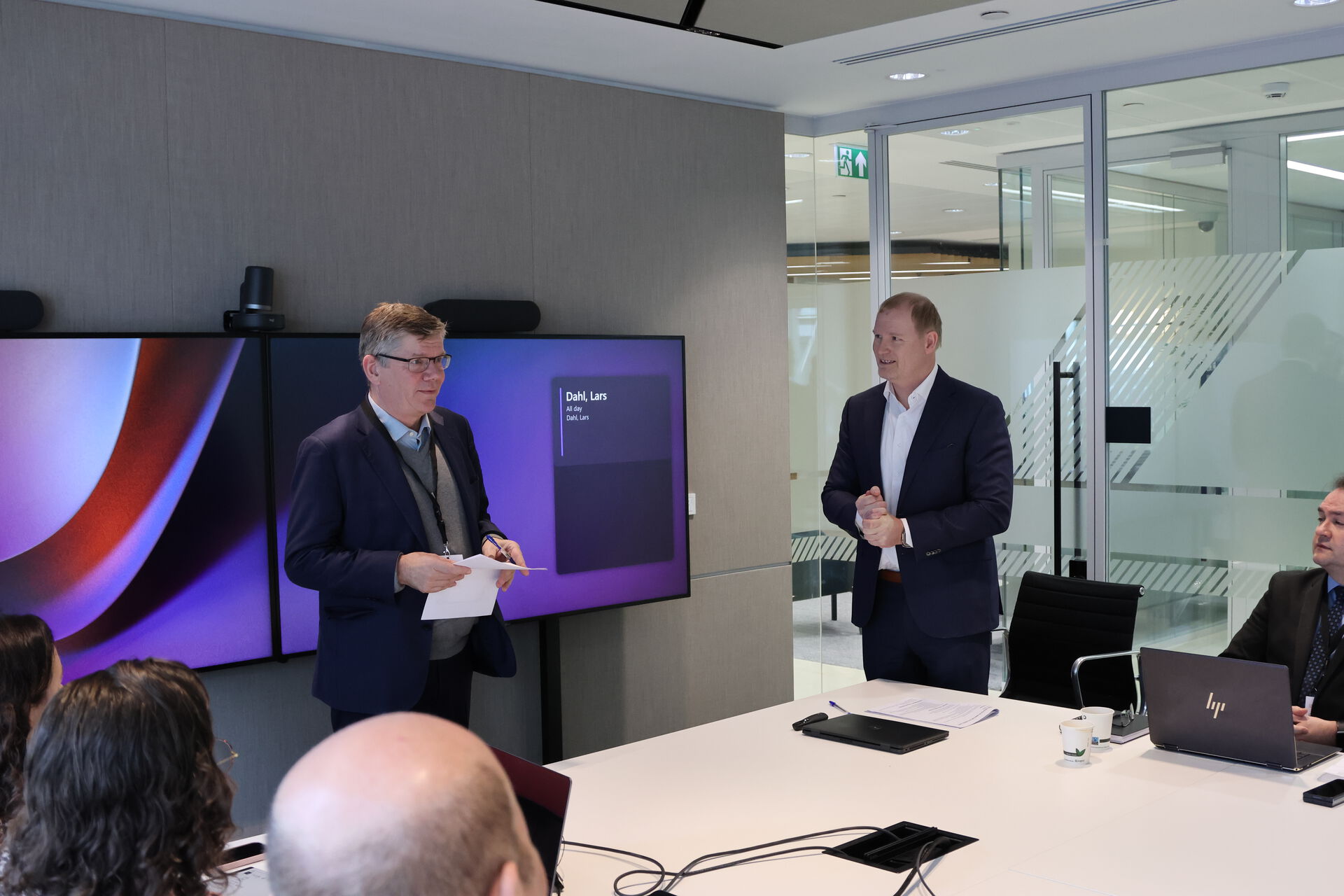
Assurance & responsibility
Kush Wadhwa, CEO, Trilateral Research, held the talk Advancing Responsible AI in Practice, were he stressed the critical need for embedding responsible and trustworthy AI practices within AI development and usage. Highlighting a significant investment gap, Wadhwa pointed out that funds are heavily skewed towards AI innovation, leaving AI safety and ethical alignment underfunded.
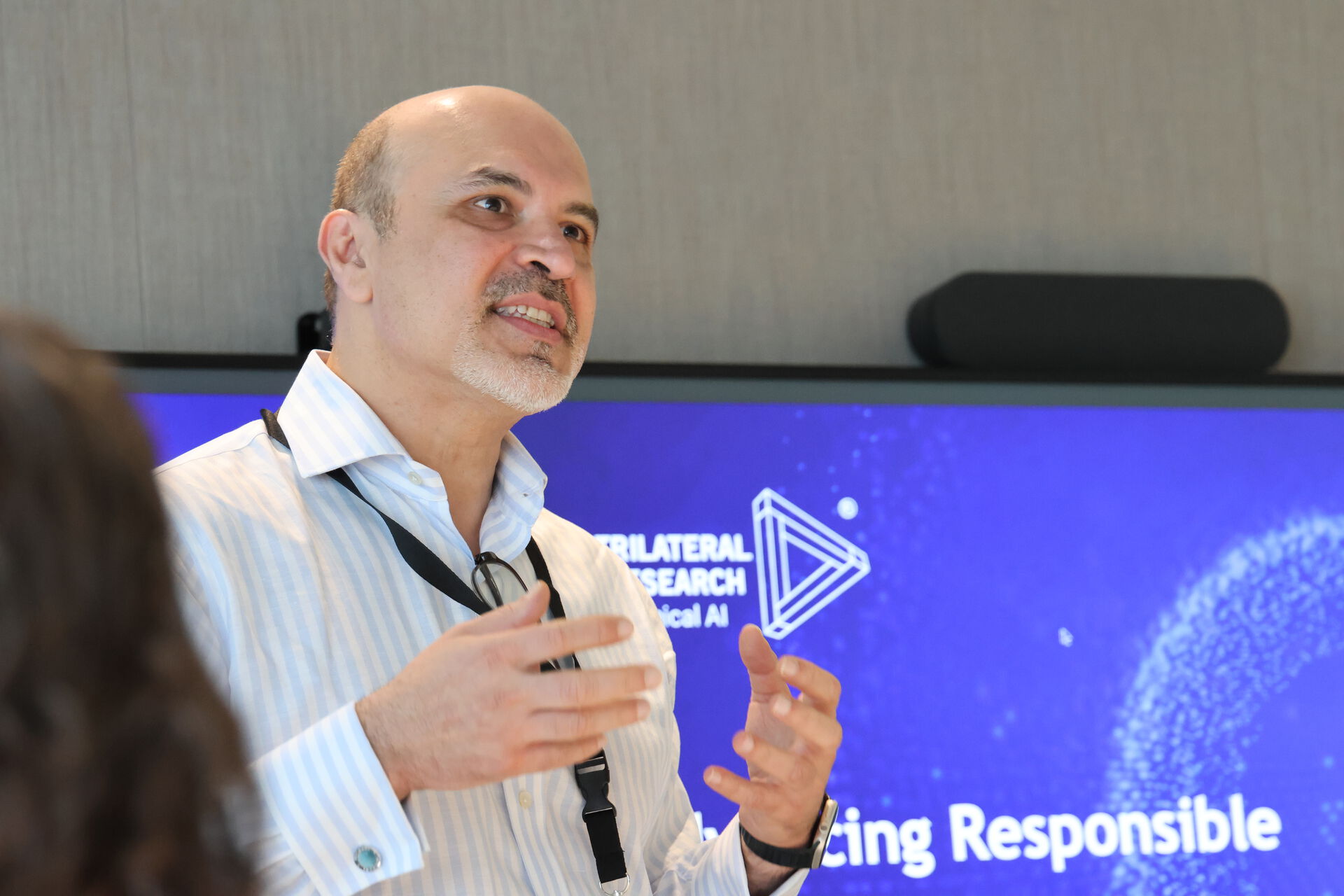
Wadhwa called for enhanced interdisciplinary collaboration that merges technical, social, ethical, and legal expertise to address AI's impacts on society.
He praised the European Union’s comprehensive AI Act as a model for regulation, advocating for stronger, principle-based regulatory frameworks to provide clarity for businesses.
Further, Wadhwa argued the importance of AI literacy among professionals to use AI effectively in decision-making processes.
He also recommended continuous AI assurance to keep pace with evolving data and models, proposing new partnerships between developers and users to ensure ongoing ethical alignment.
Concluding his presentation, Wadhwa urged for increased investments in responsible AI and a holistic approach to AI regulation that promotes a culture of continuous learning and adaptation.
Next up was Frank B?rre Pedersen, Programme Director, DNV with the talk Recommended Practice for Assurance of AI-Enabled Systems.
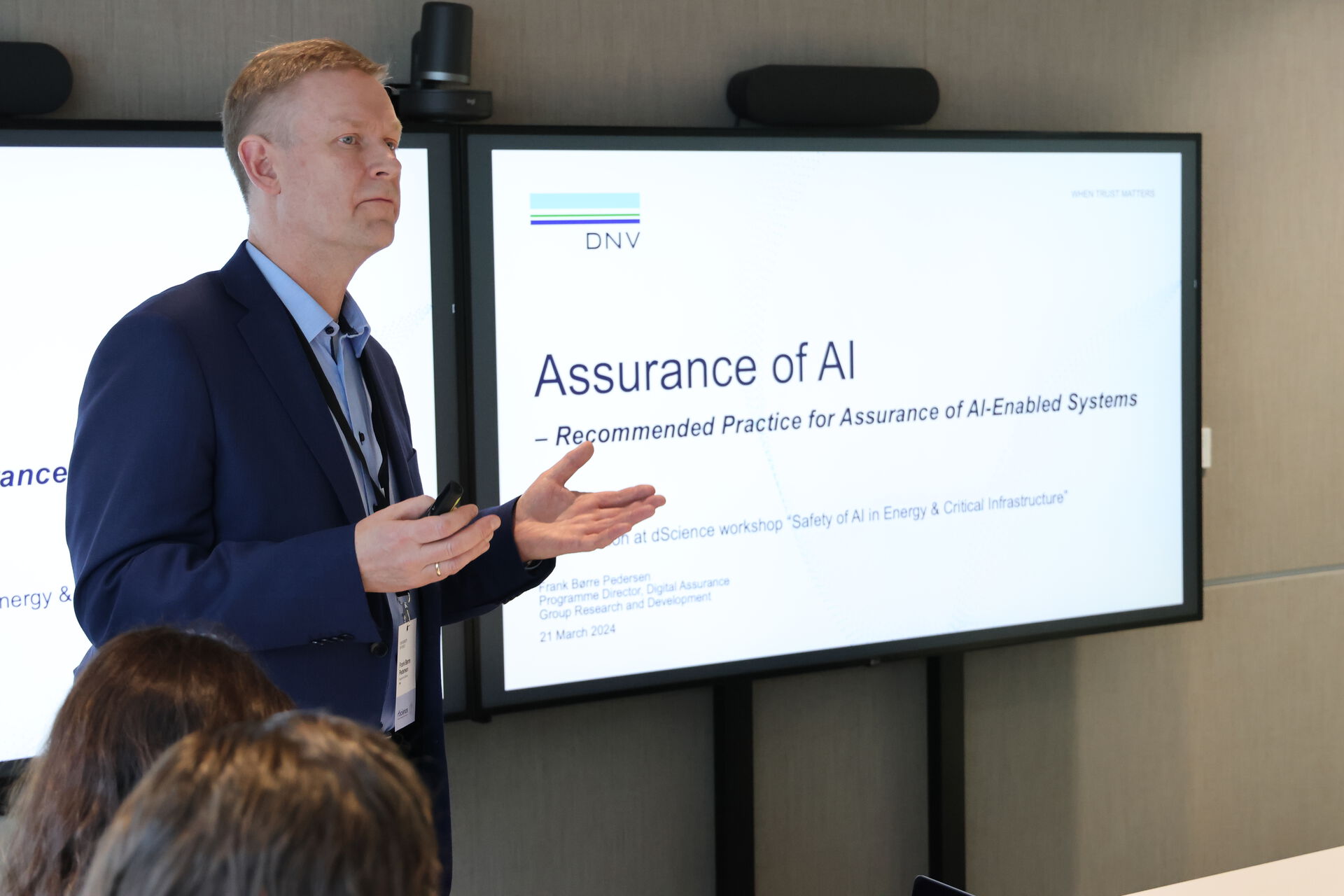
Pedersen's presentation argued need for robust assurance practices to ensure the safety, reliability, and trustworthiness of AI in critical sectors like energy and infrastructure.
He advocated for global standards to ensure AI's safe use and stressed the challenges of AI's dynamic learning and behaviour validation across different scenarios.
Pedersen called for a multidisciplinary approach to create effective frameworks for AI deployment and highlighted the importance of international collaboration among researchers, industry leaders, and policymakers to harmonise standards and address global AI challenges effectively.
Putting AI Safety into practice
Morgan Briggs, Research Associate for Data Science and Ethics, Alan Turing Institute, opened the next segment with the talk Operationalising AI Safety through a Process-Based Governance Framework.
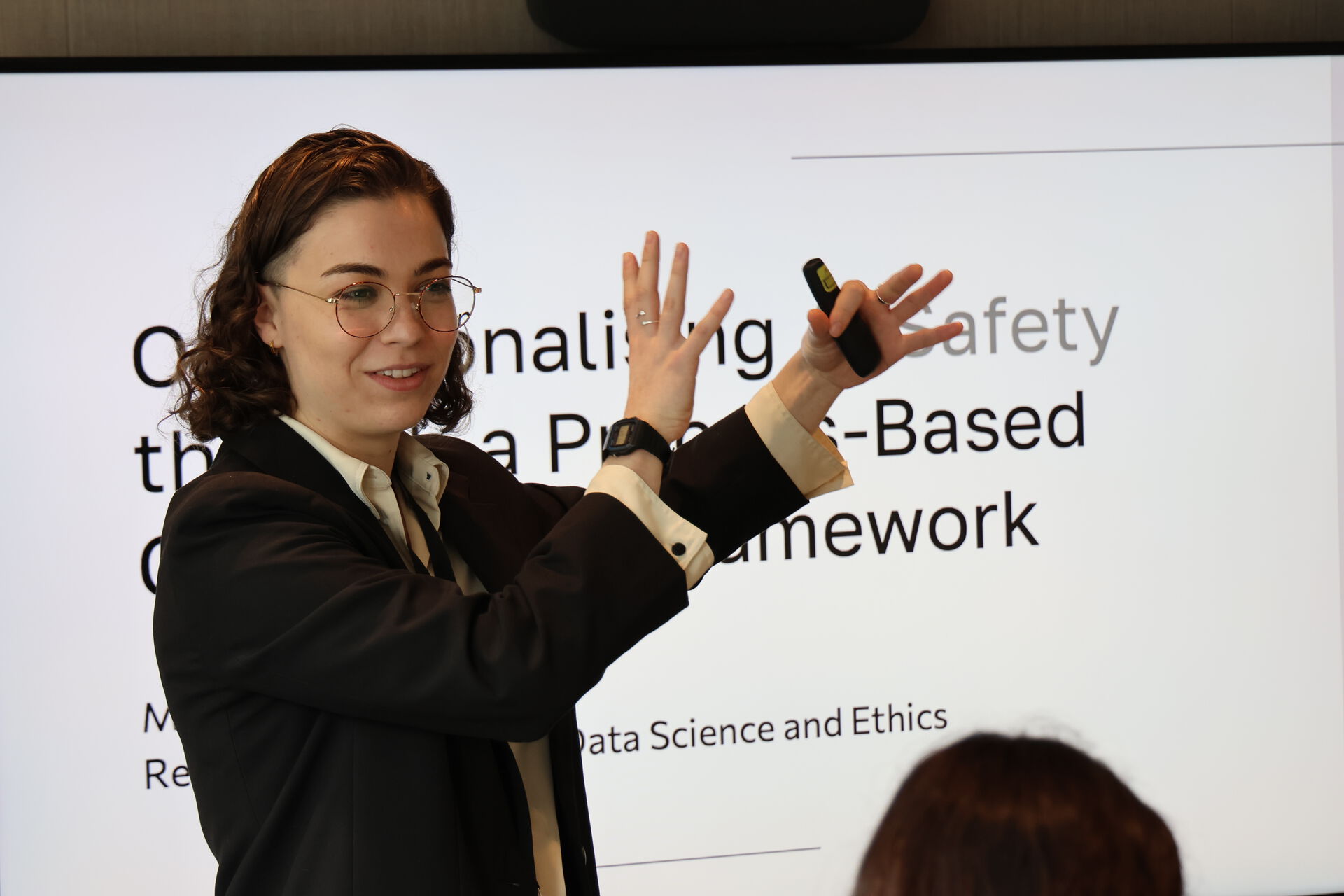
Briggs discussed implementing AI safety through a process-based governance framework, stressing the need to integrate ethical considerations and safety measures across the AI system lifecycle, particularly in critical sectors.
She also argued the complexity of AI and the necessity for a dynamic framework that includes continuous updates for reliability.
Briggs noted the role of international collaboration in advancing AI safety, referencing The Alan Turing Institute's efforts in establishing global ethical standards.
?mit Cali, Chair of Digital Engineering for Future Technologies, University of York, held the next talk on Enabling Resilience and Safety in the Digital Green Transition: Nexus of Artificial Intelligence, Energy, and Critical Infrastructure.
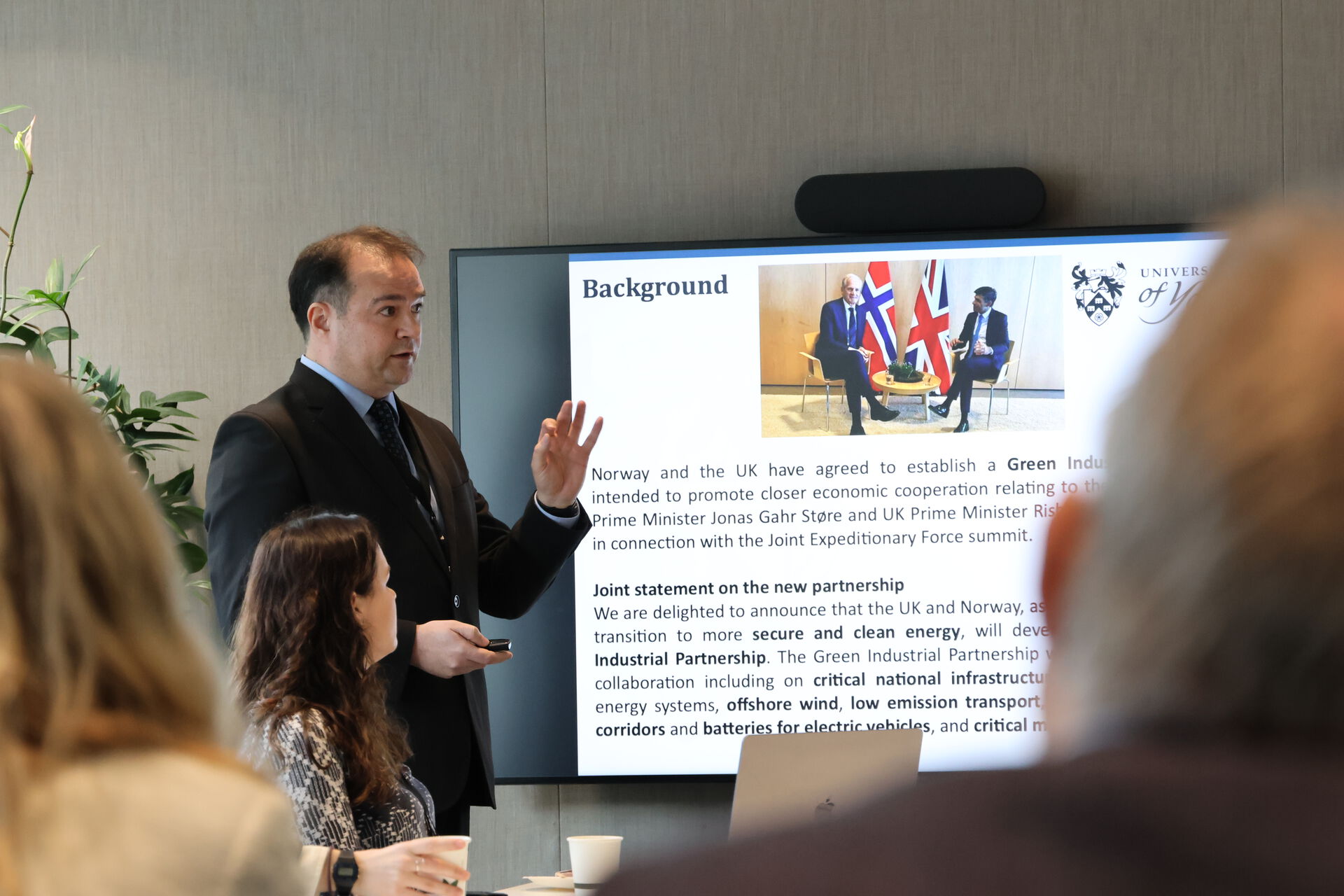
Cali’s presentation focused on the intersection of AI, energy, and critical infrastructure, advocating for a holistic approach to the digital green transition.
He discussed the "digital green shift,"also known as the "Twin Transition", highlighting how digitalisation enhances energy sector efficiency, integrates renewable sources, and secures energy systems against threats. He stressed the importance of transitioning to cleaner energy systems while protecting them from increasing cybersecurity risks.
The next presentation was by Zhong Fan, Professor of Net Zero Energy Systems, University of Exeter, with the talk Living labs and digital twin for smart energy networks.
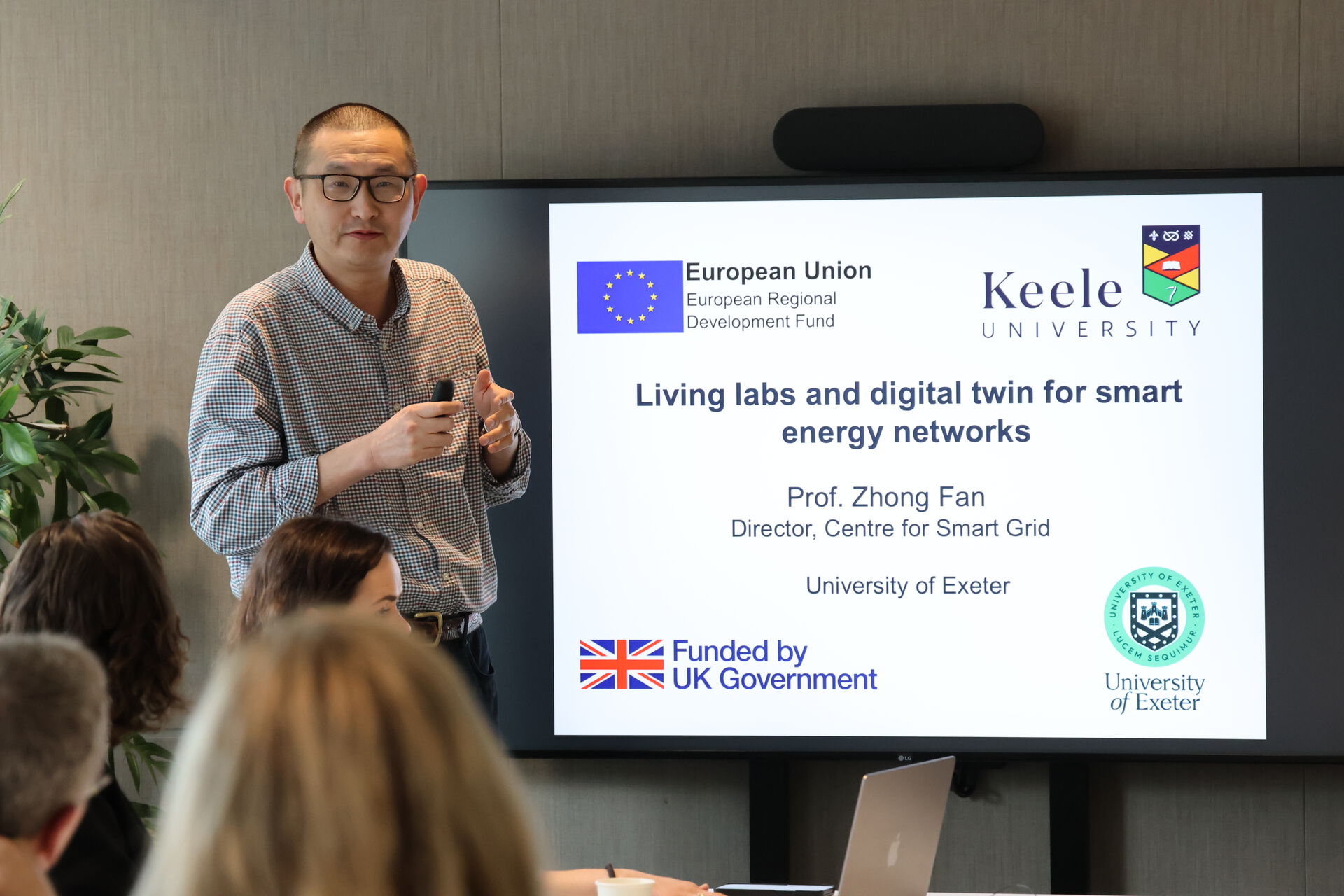
Fan explored the use of digital twins and living labs in smart energy networks, focusing on their role in addressing modern energy challenges.
He explained digital twins as virtual models that simulate real-world systems to improve decision-making in energy networks, highlighting the integration of physical models with AI and advocating for physics-informed machine learning.
Closing remarks
Morten D?hlen, Centre Leader, dScience – Centre for Computational and Data Science, highlighted the importance of preparing future workforces through comprehensive educational initiatives from PhD to bachelor levels, focusing on enriching AI education programs to meet evolving societal and industry needs. He stressed the importance of open research arenas for continuous innovation, requiring collaboration across universities, industries, and society.
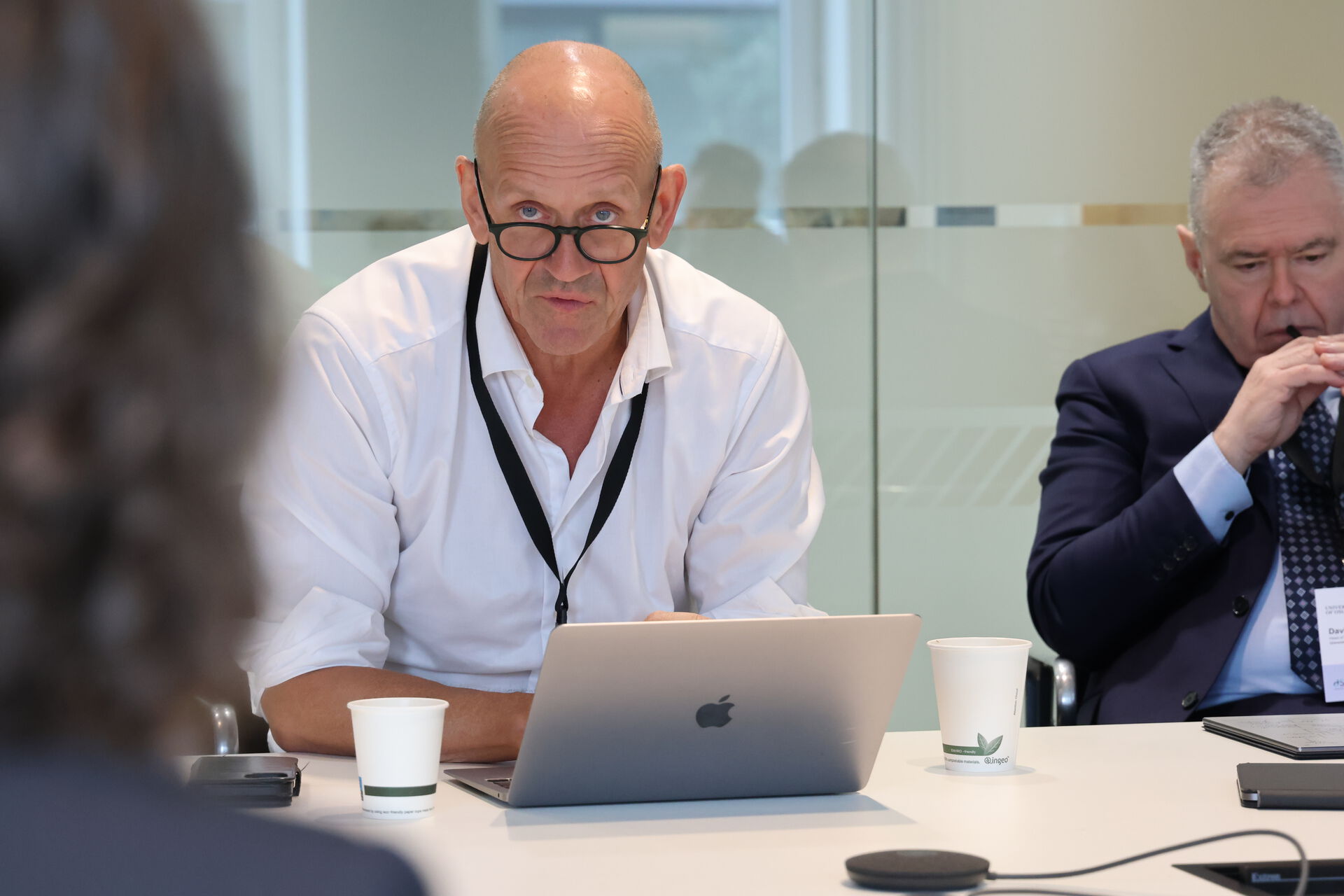
D?hlen discussed the competitive nature of funding and the need for collaborative platforms to navigate competition within research councils and the EU. He spotlighted initiatives like the dScience Partner Program at the University of Oslo, which create spaces for collaboration extending beyond academia to include industry and research institutes.
He argued the necessity of education for future workforces and the importance of collaborative platforms to manage competition for funding, all aimed at advancing AI safety and responsible AI development through international partnerships.
Idar Kreutzer’s closing remarks highlighted the challenge of balancing AI innovation with regulation, suggesting that regulatory frameworks should accelerate rather than hinder innovation. He noted that while essential, regulation alone isn't enough for optimal AI development pace and direction.
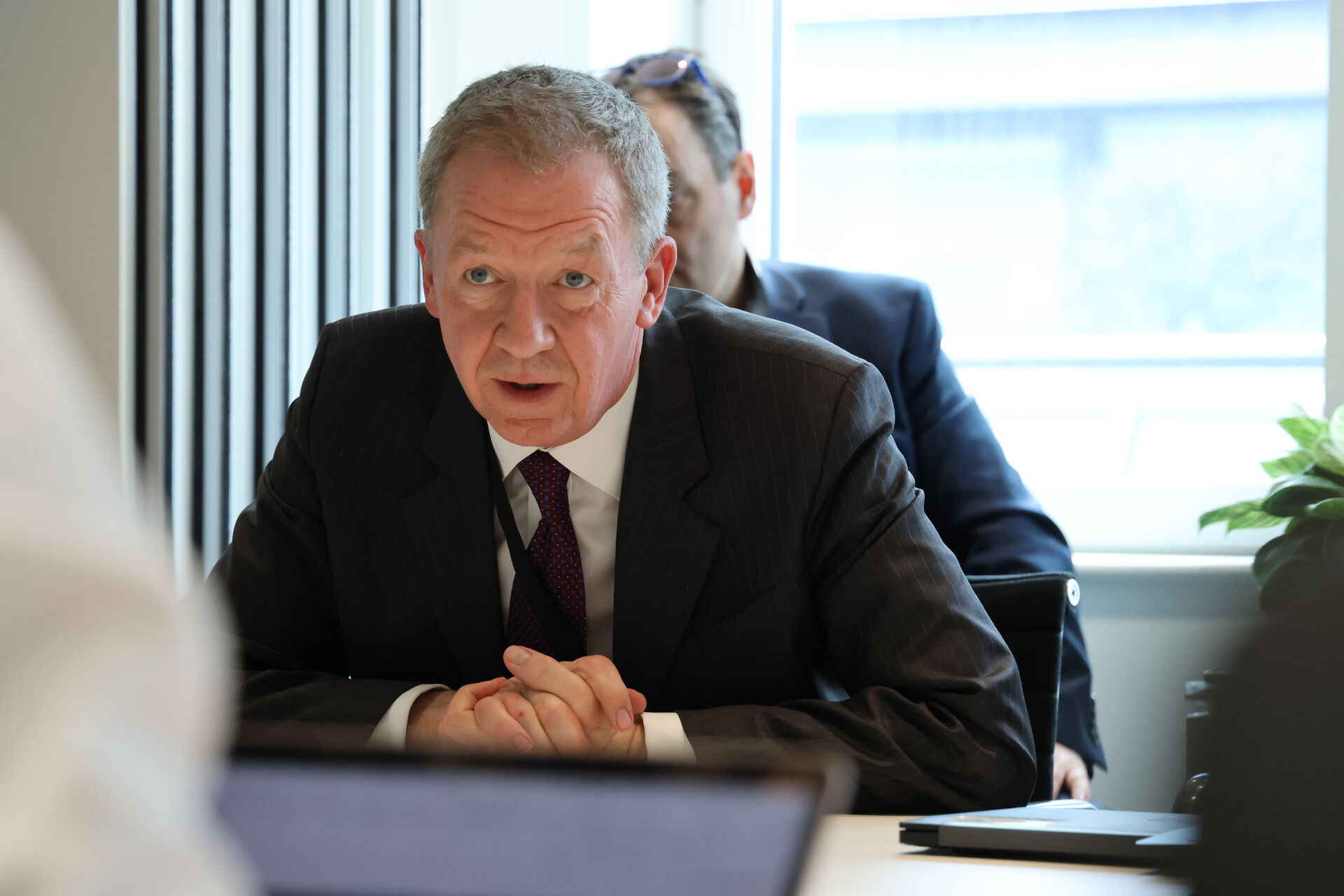
He also argued the need for a holistic approach that encompasses research, industry, and practical applications, to develop AI systems that are advanced, ethical, and sustainable.
The final closing remarks was made by David Cameron, External Engagement Manager for the dScience Partner Program.
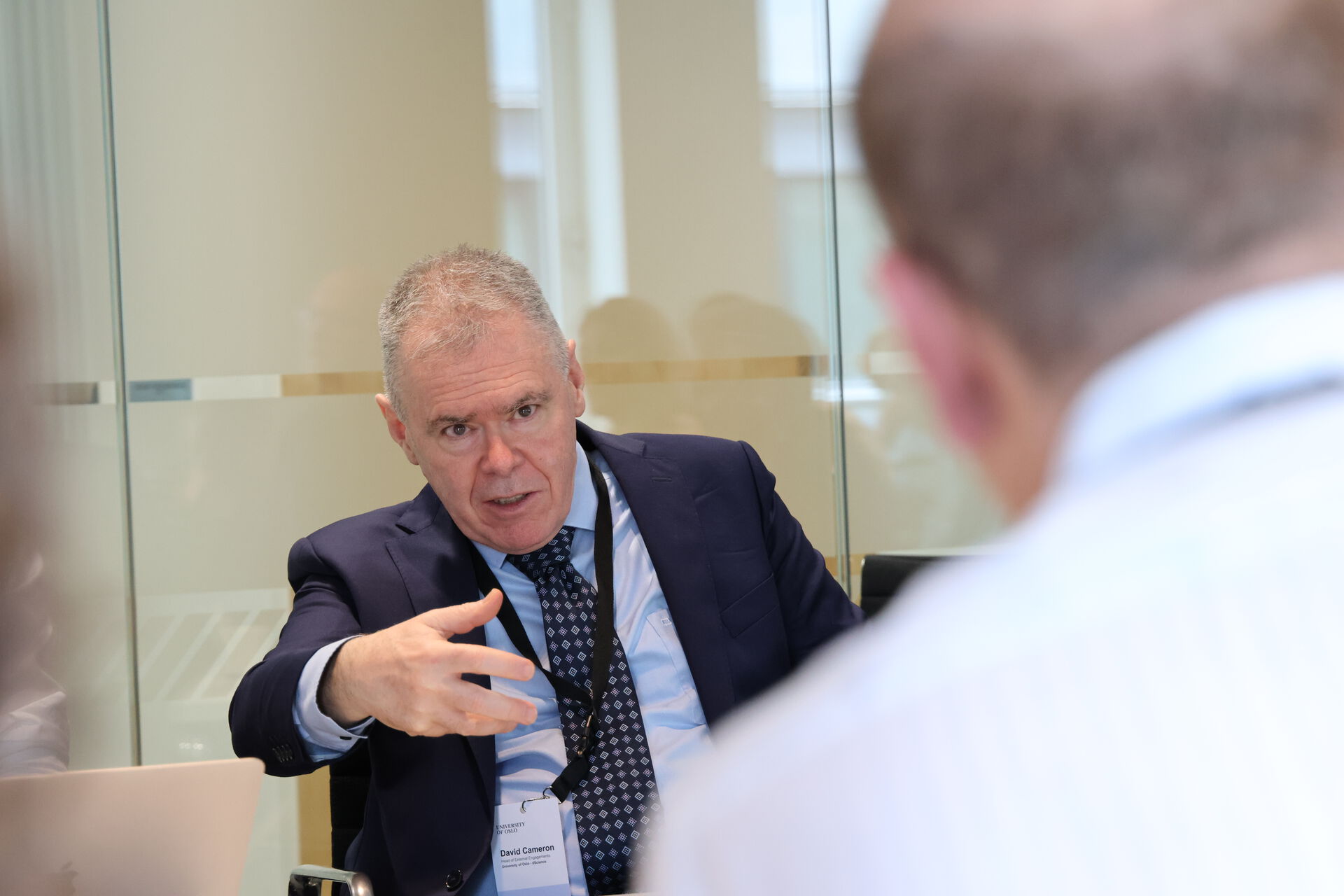
Cameron wrapped up the workshop by stressing how crucial it is to make AI research relevant to real-world impacts and safety. He mentioned that understanding safety isn't just about the technical side, but also how AI affects people and the environment it operates in.
Cameron highlighted the challenge of incorporating social aspects into AI systems, suggesting it's easier to deal with straightforward technical issues than complex social ones.
He also shared his goal for an AI centre to include UK and other international collaborators, especially focusing on energy and how it's managed with AI.
Thanks to all the participants for valuable insights and great discussions!
About the speakers
Kush Wadhwa, CEO, Trilateral Research
Kush leads Trilateral in the development of ethical AI products to combat complex societal challenges such as child exploitation, human trafficking and modern slavery and in support of climate action for the public sector. He is also a thought leader in the area of Responsible and Trustworthy AI, developing services and products for AI governance and assurance, enabling the responsible implementation of AI at scale by the private sector. Kush has built a passionate and committed team that is continuously innovating, powered by an engine of recurring research- driven innovation and guided by a shared commitment to ensure that the products and services we bring to market are reflective of our values.
Following a 15+ year corporate career in the US, Kush has been a serial entrepreneur in diverse sectors, launching ventures in Europe, North America, and Asia. Kush holds an MBA from NYU’s Stern School of Business as well as degrees in Engineering and Literature.
Frank B?rre Pedersen, Program Director - Digital Assurance, DNV.
Frank B?rre Pedersen is programme director in DNV with global responsibility for research and development on AI, digital innovations and digital assurance. He has more than 25 years of technical and managerial experience in DNV covering the energy and maritime industries, both as a consultant, project manager and research manager. He holds a PhD in quantum physics from NTNU from 1996.
Morgan Briggs, Research Associate, The Alan Turing Institute
Morgan Briggs is the Research Associate for Data Science and Ethics in the Public Policy Programme at The Alan Turing Institute, and a Visiting Research Fellow at the Digital Environment Research Institute (DERI) at Queen Mary University of London. Trained as a data scientist, she works on a variety of projects relating to human rights and AI, the use of data science to improve public service provision and policy innovation, as well as the ethical considerations of data science and AI methodologies.
Morgan has experience leading cross-disciplinary teams, partnering with organisations like UNICEF, UNESCO, the ODice for AI, the Council of Europe’s Committee on Artificial Intelligence and the Steering Committee for the Rights of the Child, the ICO, and the Global Partnership on AI. She has a track record of leading on outputs that span multiple teams, producing reports and academic papers, and giving presentations on topics such as how to move from AI ethics principles to practice, AI explainability, human rights and AI, child-centred AI, and AI and the sustainable development goals.
?mit Cali, Chair of Digital Engineering for Future Technologies, University of York.
Professor Umit Cali works at the cutting edge of digital technology and social change. He is a professor in Digital Engineering for Future Technologies at the University of York and also teaches part-time about Energy Informatics at the Norwegian University of Science and Technology (NTNU). Umit focuses on combining technology with social systems, especially in areas like artificial intelligence, blockchain, digital twins, and laws about the digital technologies.
He leads groups within IEEE, an organization that sets standards for technology, focusing on blockchain, energy, digital privacy, and more. Umit is also cofounder of multiple startup companies in the USA and Switzerland that create digital solutions for the energy sector (power, oil, and gas), and he holds three patents related to blockchain and smart contracts. Umit is the author of two impactful books: "Digitalization of Power Markets and Systems Using Energy Informatics," which examines the digital transformation in energy sectors, and "Digital Twin Driven Intelligent Systems and Emerging Metaverse," exploring the integration of digital twins with intelligent systems and the evolving metaverse.
Zhong Fan, Professor of Net Zero Energy Systems, University of Exeter.
Prof. Zhong Fan has recently joined Exeter University as the professor of net zero energy systems and the director of centre for smart grid. Previously he was a Professor at Keele University and the Academic Director of the ?16M SEND programme (Smart Energy Network Demonstrator). Before that, he was Chief Research Fellow with Toshiba Research Europe, Bristol, U.K., leading research on IoT, smart grid, data analytics, and 5G communications. Earlier in his career, he was a Research Fellow with Cambridge University, a Lecturer with Birmingham University, and a Researcher with Marconi Laboratories, Cambridge. He also received a BT Short-Term Fellowship for his work at BT Laboratories. He was an Advisory board member of the IEEE ComSoc Industry Community on IoT. His research interests are smart energy, IoT, and machine learning applications.
